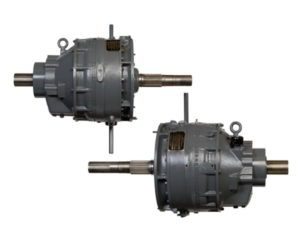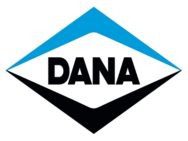
Industrial Torque Converter
Industrial torque converters provide the torque and horsepower that makes your projects go””but they’re not immune to breakdowns.
The torque converter is the part of your machine that controls how much fluid is passed on to the transmission. It also allows your engine to continue to run while completely stopped. If this specific component of the machine happens to malfunction, it can cause strange behavior such as slipping. The difficult part is trying to diagnose what the exact cause of the torque converter malfunctioning is. There can be many causes for problems with torque converters.
It can be difficult to separate an issue with the transmission from problems with torque converters. Yet, there are some signs you should be aware of that can help you pinpoint what the issue is, whether that issue be with the transmission or the torque converter.
Take a look at the three common torque converter problems you might run into:
1. Overheating
The most likely problem you’ll run into is overheating. Overheating can usually be directly traced to low converter fluid pressure and/or air present in the system. This can be caused by several factors, including:
- The fluid levels get too low
- The filter gets clogged
- The suction lines are cracked
- The charging pump is beginning to fail
Overheating can damage the seals, o-rings, and gaskets leading to fluid leaks and a lack of proper fluid circulation.
2. Deformed Blades
Fragmented or deformed turbine blades is another sure way to see an industrial torque converter quickly lose its effectiveness. This can happen as a result of rapid overheating of the torque converter or contamination ingested into the system which can lead to the turbine blades beginning to break and pull away from the hubs. With extreme heat, the blades can even break into pieces. Torque converters with deformed or fragmented blades require significant and expensive repairs (or a complete rebuild) to avoid a prohibitive loss of torque converter efficiency.
3. Proper Installation
When installing a new torque converter, it is best practice to install new cooler lines and have the radiator/cooler professionally cleaned. This ensures that all contamination from the previous converter installation is removed from the system. If coolers and lines are not clean, then debris from the previous converter failure will be ingested into the new converter causing a very quick and costly failure.
If you’ve been in this field long enough, you’ve likely dealt with a few common torque converter problems. Although we are confident in the excellent capabilities, and reliability, of the torque converters we provide, we also know that problems do occasionally arise. Considering the extreme mechanical feats of your heavy machinery, and the tasks required of the torque converters in those machines, this makes sense. What also makes sense, then, is being prepared and understanding the signs and symptoms of these common torque converter issues.
So, how can you tell when one of those issues is happening to your machinery? keep an eye out for these common symptoms of torque converter problems:
From our home office in Hurst, Texas, we supply only the best torque converters from the best brands. But we also stock a full catalog of replacement and repair parts, can manufacture customized specialty parts from our warehouse and can meet you with a service team just about anywhere in the world should you have a problem.
We’d like to take a minute and look at common symptoms to help you recognize when something has gone wrong. If you spot the problems early, they will be much easier and cheaper to fix.
SYMPTOM ONE ““ NO POWER FROM THE CONVERTER
A torque converter failure can seriously ruin a good day. You’re out in the field, slamming away at some major task worthy of an episode of Modern Marvels, and suddenly your giant Tonka starts pushing like it did when you were a kid. The engine’s running, and the pedal is pumping, but you’re getting nothing out of it. As the name suggests, your torque converter plays a vital role in converting horse power to torque. When you need it to provide you with power, you need to allow enough time for pressure to form. If it doesn’t, you won’t get the power you need. Give it time, don’t force it, and you may save yourself from a bad day.
SYMPTOM TWO ““ SURGING AND LAGGING
The death lurch. We all know it’s coming, but we never expect it to actually happen. Some machines go way too young, others seem to last forever. But so many good machines could be saved each year if owners payed attention to a few telltale signs of torque converter problems. The shudder. The jerk. They’re not dance moves, they’re problems.
When the machinery you are using feels as though it is shuddering, the problem may be the torque converter. Since the shuddering happens randomly, without rhyme or reason, you should get your transmission checked out as soon as you can.
If your machine is surging or lagging during operation, and can’t maintain constant speed, power or lift, then you may be dealing with erratic converter fluid pressure or flow. This could be due to low converter fluid in the day tank and/or air present in the converter fluid circuit. Check these levels, take care of them, and you won’t regret the extra time you spent on getting extra time from your converter.
SYMPTOM THREE ““ POWER LOSS DUE TO CLUTCH SLIPPAGE
Sometimes, after heavy acceleration, your clutch may slip. It may make you think that the converter is losing power, and that’s understandable. That’s what it feels like. But the engine is making power that the torque converter never sees, and it’s just the master clutch assembly that’s not transferring that power. With a simple clutch adjustment, you could be up and running in no time. If this condition goes untreated for too long, however, excessive damage will occur to your master clutch assembly, requiring removal and replacement. The key to saving money is maintaining your equipment and fixing problems quickly, before they grow into bigger problems.
SYMPTOM FOUR – FLUID CONTAMINATION
Another issue that points to torque converter problems is contamination in the fluid. If, when you check the fluid, you find thick clumps of dark material, either the clutches of the torque converter is damaged, or there is an issue with the transmission. Perform a fluid change before you assume the problem is the torque converter. Then, try and run the machinery for a while, and check back on it later.
SYMPTOM FIVE – SLOW ENGAGEMENT
With a ruined torque converter, the transmission will take longer than usual to engage the engine. This slow engagement results in higher stall speeds. Check you engine’s stall speed specifications, then perform a stall speed test based on the specifications listed, in order to diagnose for any torque converter issues.
Using machinery with a bad torque converter is extremely dangerous, and doing so exacerbates the symptoms listed above. Once you have identified that the torque converter is the problem, you will need to get it replaced by professionals. This particular piece of the machinery is delicate and complicated. Therefore, it should not be fixed by the average person. Otherwise, more damage to the equipment could occur.
At K&L Clutch, we provide only top-of-the-line torque converters from brands like Twin Disc, Allison, American, Clark, and more. But in those rare times when problems arise, our unparalleled service department can get you back up and running again in no time “” whether that’s from our home in Hurst, Texas, or from just about anywhere in the world you need us to be. Take a second from time to time to inspect your torque converter for visible problems like fluid levels, pressures and clutch adjustment to catch potential problems before they show up, but know that we’re here for you when more serious problems arise. Contact us for more information.


























[…] month, we talked a bit about some of the common torque converter problems. Despite the excellent capabilities and reliability of the torque converters we provide problems do […]